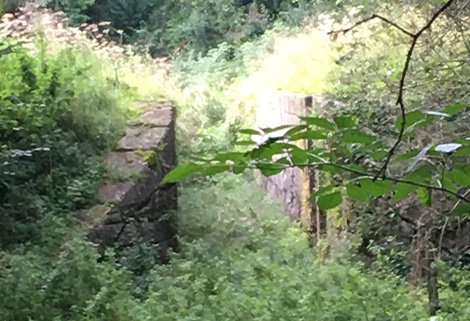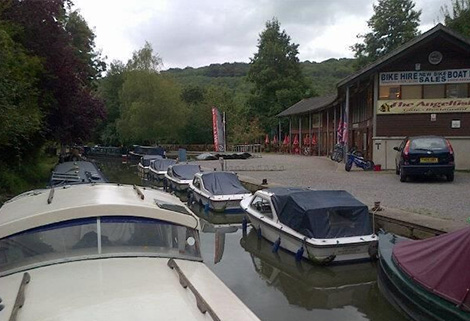dawncraft chronicles
canals on the decline
We live in a canal side cottage, or rather we did in 1805 when the Somerset Coal Canal was opened. The canal actually ran so close that they piled the earth up against the cottage, so the kitchen appears to be 3-foot underground. Indeed, the neighbours still have the bridge in the garden and the loading bay for the earth mill. An evening's walk to the pub in Combe Hay passes bridges well cut with gritty ropes, and deserted locks complete with gates that haven’t seen a barge since 1898. It was then that the canal was replaced by the Camerton Branch Railway – which ran almost through the bottom of the garden and was immortalised by the 1950s film the Titfield Thunderbolt (about a group of railway enthusiast who wanted to save their line).
This sort of leads us neatly into this article as I have just read Sou'wester, the Inland Waterways Magazine and this has got me thinking.
The work being carried out and dedication to the cause should be applauded and recognised: parts of the old Coal Canal in Timsbury and Paulton now have water in them for the first time in over 120 years. Add this to work on Wilts and Berks, various canals in Gloucester etc., and it could be true to say that there are as many canal projects on the go now as there were during the canal mania (the period of intense canal building in England and Wales between the 1790s and 1810s). One cannot but think the future of our network is a foregone conclusion considering the benefits to wildlife and to humans with walking, cycling and water pursuits. Plus the re-instatement of a simpler slow pace of life.
However, my concern is history will repeat itself.
The Somerset Coal Canal is a good point: it was extremely profitable in its day, making money for the company and more importantly for its share holders, by moving a commodity that was becoming essential for the industrial revolution - coal. The canal was shut down and business converted to rail, because you could move more coal quickly and easily and thus make even more money. Until, eventually, 50 years after it was built, that too closed down because they mined out. The Bath council made good use of the canal's bed by filling it with the town's rubbish- which promptly caught fire and burnt for years !!! but is still a good source of old railings, glass bottles - you name it (even most of the toilet block from the old Somerset and Dorset railway station)!


So here’s the rub in the same magazine DEFRA have cut the grant to CRT by £12.6m a year. to quote the magazine, that means that means:
- Being unable to do winter maintenance on 586 miles of waterway.
- Being unable to operate maintain and repair 156 miles of waterway.
- 50 0/0 of the spend on reservoirs will be unfunded (one assumes these are to feed the canals with water?)
Add into this a recent BBC article on the Regent Canal boat dwellers, which I felt was skewed to highlight the fact that most residential canal boaters burn fossil fuel – the very thing the canals were built to transport - as well as running their diesel engines for hours in the winter to make and store a minimal amount of electricity compared to the energy used to make it – all rather bluntly pointed out in the article.
We are all struggling financially, none of us can really sustain an increase in licence fees, along with fuel costs etc. We have tightened our belts to the last hole and there’s worse: we have no time. Many of the people who are near retirement, or have already retired, are now raising grandchildren to keep their own children working to pay the endless bills. The skills required to maintain and restore a canal are dwindling, "retired stone masons , blacksmiths, brickies..." Soon the only skill any one can offer will be "management or IT".
If we are going to save our way of life, we all need to start thinking up better arguments than environmental / green and social benefits and concentrate on the only thing government ministers ever understand. They are, I suppose, the equivalent of the old shareholders £ Sterling, and their 20% cut on any revenues raised. Today we have grown weary of the deadline headline. Ten years to save the planet, etc and gluing yourself to a canal could be problematic. However, I am concerned that history will repeat itself and the slow painful decline of our precious waterways will become evident by the end of my time.

